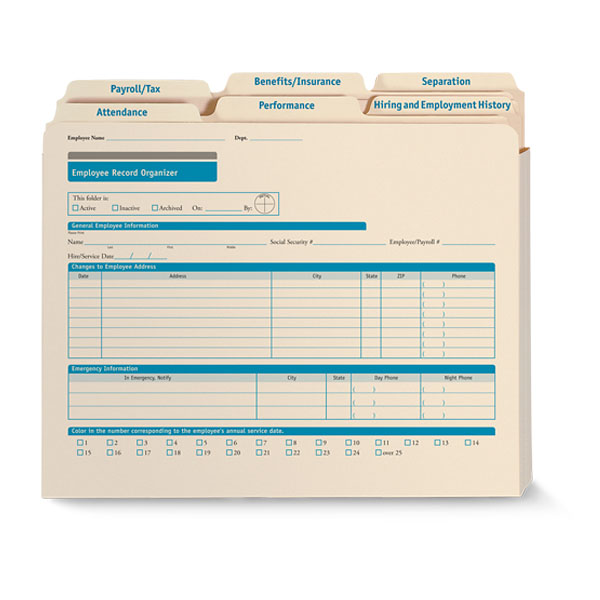Businesses across all sectors are under pressure to manage information more efficiently while maintaining strict compliance standards. Yet, many organizations—especially in healthcare, legal, finance, manufacturing, government, and education—still rely heavily on paper-based processes. These outdated systems consume time, create storage challenges, and leave operations vulnerable to human error, data loss, and compliance risks.
The Benefits of Electronic Records in Industry-Specific Workflows
Traditional document storage is missing the mark in numerous ways, especially when getting compared to newer technologies. The office of today has many high tech possibilities to rely on, one of them being electronic document storage.
If your organization hasn’t made the switch yet, you may be wondering whether electronic document storage is worth it. Here are some of the most important advantages associated with the technology.
Topics: Electronic Records
The Overall Advantages of Electronic Employee Records
Managing employee records is a crucial function for any business. Employee information, timecard management, performance evaluations, and other similar data is collected and stored on most employees. However, traditional ways of maintaining these records can be difficult. Manual tracking and management can lead to human error and gridlock. Electronic employee records are easier to manage, keep accurate, and access.
Topics: Electronic Records
Top 5 Advancements in the Electronic Records Management Industry
Electronic records management has come a long way since the advent of the computer. While being able to store and access documents on a computer was a huge advancement for document management, recent years have seen an incredible explosion in technologies that directly impact how document management works. Today’s document management systems are highly efficient and powerful, resulting in increased productivity, less wasted time and great cost savings for businesses in nearly any industry.
Topics: Electronic Records
Allowing Your Green Office to Grow with Electronic Records Management
Going green at your office shows your commitment to sustainability and the future of our planet. An electronic records management system is a great way to demonstrate this. But not only is your paper-based system worse for the environment, it’s also slower and hampers the ability of your business to grow.
Topics: Electronic Records
Overcoming Obstacles When Implementing an Electronic Document Management System
Electronic document management is undeniably the way of the future, but that doesn’t mean there won’t be barriers to implementation and use. Whether or not your staff are willing to let go of their old routine and try something new may not be the only objection you hear when announcing your change to electronic document management systems. Some of the most common objections to this change appear over and over again, so consider these obstacles and how to overcome them.
How an Electronic Document Management System Can Support Business Growth
You want your business to grow. There are many assets that you can invest in to spur business growth. When you think of how to grow your business, better marketing and complex power moves within your industry come to mind. However, one of the most powerful tools that you should be using right now is actually relatively simple. You need an electronic document management system. Let's explore how this small move can take your business' growth to the next level.
Topics: Electronic Records, business growth, Document Management and ECM
The Importance of Electronic Medical Records in 2015
Electronic medical records (EMRs) have been in use for many years, and many medical organizations have found them pretty useful. Thanks to rapid advances in the applications of this technology, 2015 will be a little different. For the new year, the importance of electronic medical records mandates their use. Here is why:
Why Managing Traditional Employee Records Costs You Time and Money
While employee records are – from both a legal and operational perspective – necessities of doing business, their management can cost you a lot of time, resources, and money. Ensuring that employee records are up to date is important for a variety of reasons: informing decision making processes; staying on top of performance and salary reviews; even compliance to labour laws and regulations. Because management of employee records is so critical, the format of your records and the efficiency of your management process can have a significant impact on your business. For those using more traditional methods for keeping employee records, it’s likely that your process is costing you both time and money – here’s why.
Topics: HR, Electronic Records
The Unconventional Guide to Electronic Records Management for HR
 Human Resource management is a multi-faceted organizational challenge. Along with talent acquisition and retention, HR departments are faced with the tasks of electronic HR records management, meeting government regulated compliance standards, as well as meeting time sensitive payroll processes.
Human Resource management is a multi-faceted organizational challenge. Along with talent acquisition and retention, HR departments are faced with the tasks of electronic HR records management, meeting government regulated compliance standards, as well as meeting time sensitive payroll processes.
With so many responsibilities falling onto the HR department, inefficiencies tend to surface, particularly in regards to paperwork and administrative burdens, delayed payment, review and approval processes, and even in the hiring process itself. These inefficiencies stem primarily from a common underlying issue: outdated HR records management.
For organizations wishing to curtail their HR records management challenges, the following advice is a step in the right direction. Here is our unconventional guide to electronic records management for HR.
Topics: HR, Electronic Records









